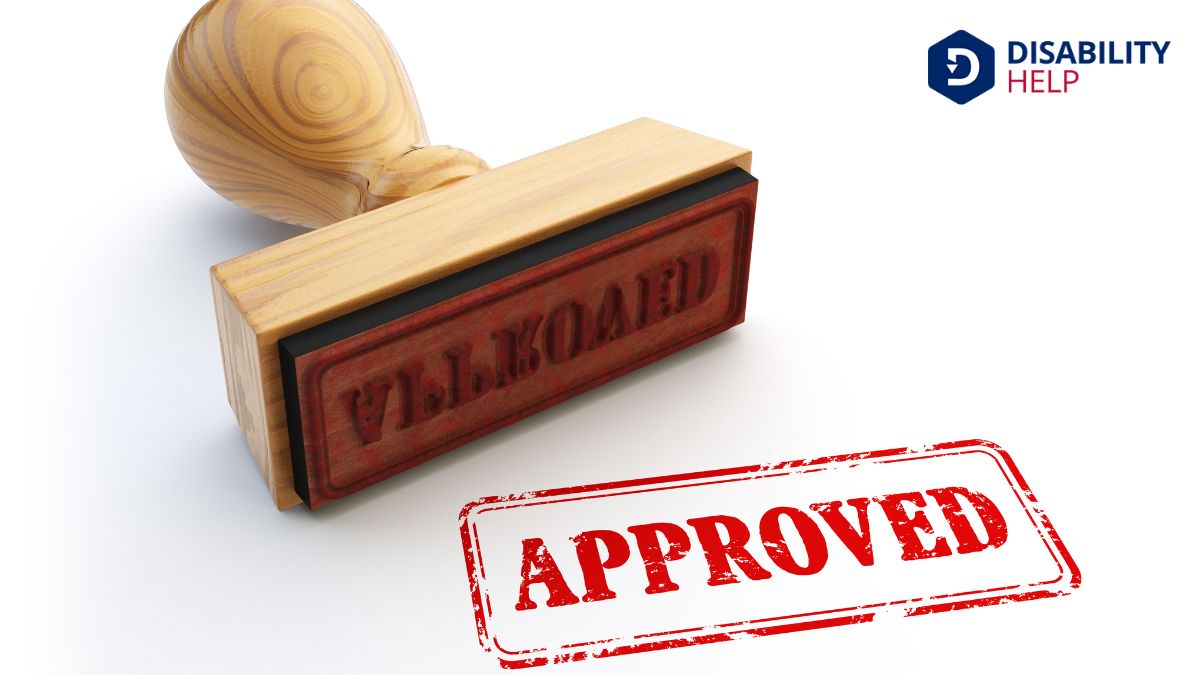When we're trying to understand which states make it hardest to get on disability, Alaska, Mississippi, and West Virginia stand out. These states have strict evaluation processes, which means lower approval rates and longer wait times. Factors like stringent criteria, scarce resources, and less experienced staff contribute to these challenges. Economic conditions and the healthcare infrastructure in these states also play a significant role in making it difficult to gain approval. Applicants face higher initial denial rates, making the process even more overwhelming. If we're curious about what influences approval odds, let's explore the specific criteria and strategies involved.
Key Takeaways
- Alaska has a rigorous evaluation process, leading to lower disability approval rates.
- Mississippi experiences prolonged processing times due to fewer experienced staff.
- West Virginia has strict criteria and limited resources, affecting approval outcomes.
- State-specific policies in Alaska, Mississippi, and West Virginia contribute to higher initial denial rates.
- Economic and healthcare infrastructure in these states impact disability acceptance rates.
Understanding Disability Approval Rates

When trying to understand disability acceptance rates, it's crucial to take into consideration the factors that influence these statistics. Together, we can explore how these acceptance rates reflect a complex system. Acceptance rates vary from state to state, and while understanding the reasons for this is vital, it's equally important to recognize the process individuals go through when applying for disability benefitsFinancial assistance provided to individuals who are unable to work due to a disability, such as Soc....
We need to contemplate the standard procedures that applicants face. The Social Security Administration (SSA) uses a consistent set of criteria to evaluate each case. However, the journey doesn't end there. Applicants often navigate through initial denials and subsequent appeals, which can significantly affect acceptance outcomes. By focusing on these aspects, we gain insight into why some applicants receive acceptance while others face challenges.
Additionally, we should remember that acceptance rates aren't just numbers; they represent real people seeking support. Every application tells a story of someone attempting to secure essential resources. Understanding these stories helps us empathize with the individuals behind the statistics.
As we delve deeper into this topic, let's keep in mind the human element involved and work to comprehend the intricacies of disability acceptance rates.
Factors Affecting State Disparities
State disparities in disability acceptance rates stem from a variety of factors that influence the approval process. When we examine these factors, we can see how they create differences from one state to another.
First, the criteria used to assess disability claims can vary. While the federal standard sets a baseline, each state might interpret certain guidelines differently, leading to variations in who qualifies.
Additionally, the experience and training of the staff evaluating claims can impact the outcome. States with well-trained personnel may process claims more effectively, resulting in higher or more consistent approval rates.
Another factor is the backlog of applications. Some states face higher volumes of claims, which can lead to delays and stricter scrutiny as workers manage their workload. This can affect how quickly and favorably claims are processed.
Moreover, the appeals process plays a role. States with efficient systems for handling appeals might see different approval rates compared to those with lengthy, complex procedures.
Lastly, public awareness campaignsEfforts to educate the general public about disability issues, often involving media, events, and so... and local advocacyThe act of arguing in favor of, supporting, or defending the rights and interests of individuals or ... groups can influence how well applicants understand the process, potentially affecting approval rates. By considering these factors, we can better appreciate why disparities exist across states.
Economic and Healthcare Influences
Economic conditions and healthcare infrastructure greatly influence disability acceptance rates across states. When we think about states with limited economic resources, it's clear they may struggle to support comprehensive disability programs. States with budgetary constraints might prioritize funds differently, often impacting the resources allocated for disability assessments and support services. This can lead to fewer approvals as there's less capacity to process and support claims efficiently.
Healthcare infrastructure is another critical factor. States with well-established healthcare systems often offer better access to medical evaluations necessary for disability claims. When healthcare facilities are scarce or underfunded, getting the required medical documentation becomes challenging for applicants. Without proper medical evidence, claims are more likely to be denied.
Moreover, the economic health of a state can affect employment opportunities, indirectly impacting disability claims. In areas with fewer job prospects, individuals might apply for disability benefits as a means of financial stability, leading to higher application rates and potentially stricter approval criteria.
The Toughest States for Approval
Getting through the disability approval process can be especially challenging in certain states. We acknowledge that the road to securing disability benefits is filled with obstacles, and some states make it even more difficult. States like Alaska, Mississippi, and West Virginia stand out as particularly demanding due to their strict evaluation processes and lower approval rates. These states often have more rigorous criteria and limited resources, which can prolong the entire process.
In these challenging states, applicants might face extended wait times and a higher chance of initial denial. This can be frustrating and disheartening, especially when compared to states with higher approval rates, like Hawaii or New Jersey. It's essential to know that state-specific policies and administrative practices play a significant role in these differences.
For example, some states might've fewer experienced staff to handle claims efficiently, leading to prolonged processing times.
When dealing with these tough states, we should acknowledge that grasping local requirements and preparing detailed applications can be essential. It's important to be aware of the obstacles in these states so we can approach the process with patience and persistence, knowing that perseverance is often required to achieve success.
Strategies for Improving Approval Odds

One effective strategy to improve our odds of disability approval is to have thorough medical documentation. We should make sure our medical records are detailed, covering all aspects of our condition and its impact on our daily lives. It's essential to have detailed notes from our healthcare providers, including test results, treatment plans, and doctors' opinions on our limitations.
Next, we need to be consistent with our medical treatment. Regular visits to our healthcare providers not only help in managing our condition but also demonstrate our dedication to treatment. Consistency in our medical history can greatly influence the decision-making process.
We should also consider seeking assistance from a disability advocate or attorney. They can guide us through the complex application process, helping us avoid common pitfalls and making sure that our application is thorough and compelling.
Additionally, we must be honest and precise when describing our limitations. During both the application and any hearings, providing specific examples of how our condition affects our work and daily activities can give a clearer picture for decision-makers.
Conclusion
We've explored the challenges of getting disability approval, highlighting how state disparities, economic factors, and healthcare access play significant roles. Some states are undeniably tougher, but understanding the approval process can empower us to better navigate it. By arming ourselves with thorough medical documentation and seeking legal assistance when necessary, we can improve our odds. Let's remember that persistence and preparation are key as we advocate for the support we rightfully deserve. Together, we can face these hurdles.






